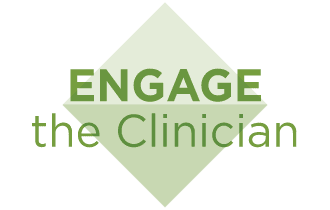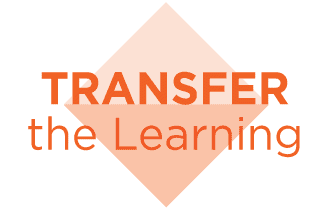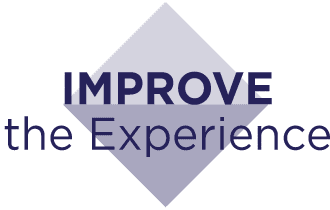
“Where the art of medicine is loved, there is also a love of humanity”
-Hippocrates
Committed to improving the healthcare experience, The hArt of Medicine® program gets to the hArt of the experience—the interaction and relationship patients, family and clinicians have with each other.
The hArt of Medicine® program is designed to create a powerful, positive and personal human interaction that sets the stage for an organizational culture which fosters exceptional healthcare experiences for patients, families and caregivers.

in creating therapeutic relationships and improving their communication skills through a unique experiential learning approach

to the workplace through exercises,
coaching and mentoring

for the patient and clinician by introducing and reinforcing scientific based theories and concepts
The hArt of Medicine program is tailored to support the clinical practice needs of each healthcare specialty; including physicians / providers, nursing, and joint team workshops.


The hArt of Medicine® workshops are designed to inspire, motivate and empower. With a strong focus on the therapeutic relationship, the skill of empathy and communication development, it centers its approach to improving the healthcare experience – for both the patient and the clinician – by engaging and empowering clinicians to rediscover their own ability to ‘make a difference’.


The program integrates five focus areas, with a strong emphasis on improving the clinician experience. The workshops are structured to promote new attitudes and to increase self-awareness, bringing insight and choices into how the clinician can positively influence their encounters with patients and colleagues.
The experiential and reflective exercises are designed to enlighten and motivate, providing the clinician with ideas, concepts and tools that are easily integrated into their practice. The personal and patient benefits they experience as a result of this new approach are sustained through the observational coaching and video simulation sessions.

Integrating the communication skills and core conditions into practice is a key component of the hArt of Medicine program. The focus of the observational coaching sessions is to help the clinician to appreciate their own behaviors and actions and how they may be influencing their encounters with patients and colleagues.
Utilizing a strengths-based, clinician-centered approach, the observational coaching sessions concentrate on exploring, with the clinician, their particular strengths, attributes and behaviors that lead to positive, therapeutic interactions. This particular approach promotes an encouraging and trusting environment that helps the clinician to appreciate their own actions and behaviors in the encounter and how this, in turn, influences the patient responses. Through increased self-awareness, the clinician is empowered and confident in their ability to direct and change an encounter.

The video simulation sessions are designed to create a collaborative, comfortable and positive learning environment where providers learn from each other. The video simulation and self-assessment format is a powerful tool where providers visually demonstrate and discuss tangible examples of communication competencies.
Utilizing a defined scenario that describes clinical presentations and personal ‘patient’ characteristics, the simulated encounters are purposefully not scripted. The simulation sessions are not designed to ‘teach’ what the participants should be doing, rather, by observing their own behaviors and language, as well as their colleagues’, an experiential learning environment is created – where participants learn from each other and experience the positive impact of adopting new communication techniques into an encounter.

Essential to the quality and sustainability of the changes in behavior and patient interactions, the Leader Actions & Accountability sessions begin with a review and discussion of the hArt of Medicine program content. With an emphasis on change leadership and creating productive teams, the format is structured to identify specific leadership actions and accountability plans that promote modeling and reinforcing new behavior and practice changes.
